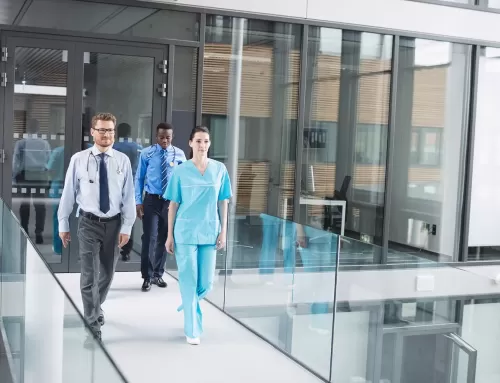Magnetic Resonance Imaging (MRI) is a revolutionary medical technology that has transformed how we diagnose and understand various health conditions. This comprehensive exploration delves into the world of MRI, its significance in modern medicine, and its incredible impact on patient care.
Magnetic Resonance Imaging
MRI, short for Magnetic Resonance Imaging, was developed as a non-invasive imaging technique that allows physicians to explore the human body’s inner workings. Unlike traditional X-rays or CT scans, MRI harnesses the power of magnetic fields and radio waves to create highly detailed images of the body’s internal structures.
The Science Behind MRI
MRI operates on nuclear magnetic resonance (NMR) principles, a scientific concept that emerged in the mid-20th century. By exposing the body to a strong magnetic field and radio waves, MRI scanners stimulate the nuclei of hydrogen atoms in the body’s tissues. These nuclei emit signals that a computer processes to create detailed, cross-sectional images.
Medicinal Significance of Magnetic Resonance Imaging
MRI is pivotal in modern medicine by providing high-resolution, non-invasive imaging of the human body’s internal structures. Its significance lies in its ability to detect and monitor various medical conditions, from neurological disorders like brain tumours and neurodegenerative diseases to orthopaedic issues such as ligament injuries and bone fractures.
Additionally, MRI (Magnetic Resonance Imaging) technology allows for functional imaging (fMRI), which is crucial for understanding brain activity and has opened new avenues for neuroscience research. Its non-invasive nature and exceptional detail make it an essential tool for accurate diagnoses and treatment planning, ultimately enhancing patient care and reducing the need for exploratory surgeries, thus minimising patient discomfort.
Applications of Magnetic Resonance Imaging
MRI has become an indispensable tool in medicine, enabling the diagnosis and monitoring of various medical conditions. It is widely used in the following areas:
- Neuroimaging: In neurology, MRI (Magnetic Resonance Imaging) is invaluable for examining the brain and spinal cord. It helps diagnose conditions such as tumours, strokes, and neurodegenerative diseases.
- Musculoskeletal Imaging: Orthopaedic specialists use MRI to assess bone and joint health. It aids in the detection of fractures, ligament injuries, and arthritis.
- Cardiovascular MRI: Cardiologists utilise MRI to assess the heart’s structure and function. It provides critical information for diagnosing heart diseases.
- Abdominal Imaging: MRI is a non-invasive alternative for examining the organs in the abdomen, such as the liver, kidneys, and pancreas. It aids in detecting tumours, cysts, and other abnormalities.
The Advantages of MRI
The utilisation of MRI offers several advantages in the medical field:
- Non-Invasiveness: MRI (Magnetic Resonance Imaging) does not involve ionising radiation, making it safer than X-rays and CT scans.
- High Resolution: MRI provides exceptionally detailed images for accurate diagnosis and treatment planning.
- Versatility: It can be applied to various medical disciplines, from oncology to obstetrics.
- Functional Imaging: Functional MRI (fMRI) is a specialised form of MRI that can assess brain activity, opening new avenues for neuroscience research.
The introduction of MRI technology has significantly improved patient care and outcomes. Physicians can make more informed decisions, resulting in early diagnosis and tailored treatment plans. The technology also reduces the need for exploratory surgeries, enhancing patient comfort and recovery.
Final Thoughts
Magnetic Resonance Imaging (MRI) has undoubtedly revolutionised the world of medicine. It has become an essential diagnostic tool, providing unparalleled insights into the human body’s inner workings. As MRI technology advances, it promises even more accurate diagnoses and better patient care, reaffirming its crucial role in the ever-evolving healthcare field.
If you require MRI (Magnetic Resonance Imaging) services that uphold the highest accuracy and patient care standards, we recommend you explore Concise Medico’s MRI services. Click here to discover how we can assist you in your healthcare journey.




